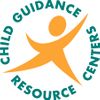Written by Brianna Matey, VP of Clinical Services
Talking with children and adolescents about sexuality is an important but at times intimidating venture. When you are talking with individuals with autism, disabilities or developmental delays, it’s just as important but requires a bit of a different approach and care. One of the most important things we want everyone to understand, however, is that people with disabilities have hormones and experience sexuality! They are often mislabeled as asexual but this is not true! It is so important to talk about it, not just for their own development and quality of life, but as a protective measure as well. Thankfully, there are wonderful resources to support the conversation regardless of the age or disability and we’re sharing some of our go-to’s below.
According to the National Crime Victimization Survey, an average of 59,000 adults with disabilities are raped or sexually assaulted annually. Approximately half of all adults with cognitive disabilities will experience 10 or more sexually abusive incidents in their lifetime. Talking about boundaries, their bodies, and sexuality is critical in helping protect and empower people with disabilities. Respectability has a plethora of resources that address sexuality, hygiene, masturbation, puberty and body changes, and more. They are one of our favorite to recommend!
Understanding your role and figuring out what to discuss, when, and how is complicated! The Center for Parent Information and Resources has a great page with many resources for parents to explore. They begin with the basics (what IS sexuality?!), how do disabilities impact sexuality, dating with a disability, and information about your important role as the parent or caregiver.
If you don’t want to dive into many resources, this page from the Sexuality Resource Center for Parents offers a great list of 22 foundational suggestions and for setting yourself up for success and framing a conversation about sexuality.
It’s never too early to think about, and offering an open and on-going dialogue will offer your child the support they need to ask questions, understand their bodies, develop boundaries, and feel more comfortable in their own skin. You’re doing a wonderful job as a caregiver to seek support and resources for this important developmental stage!

